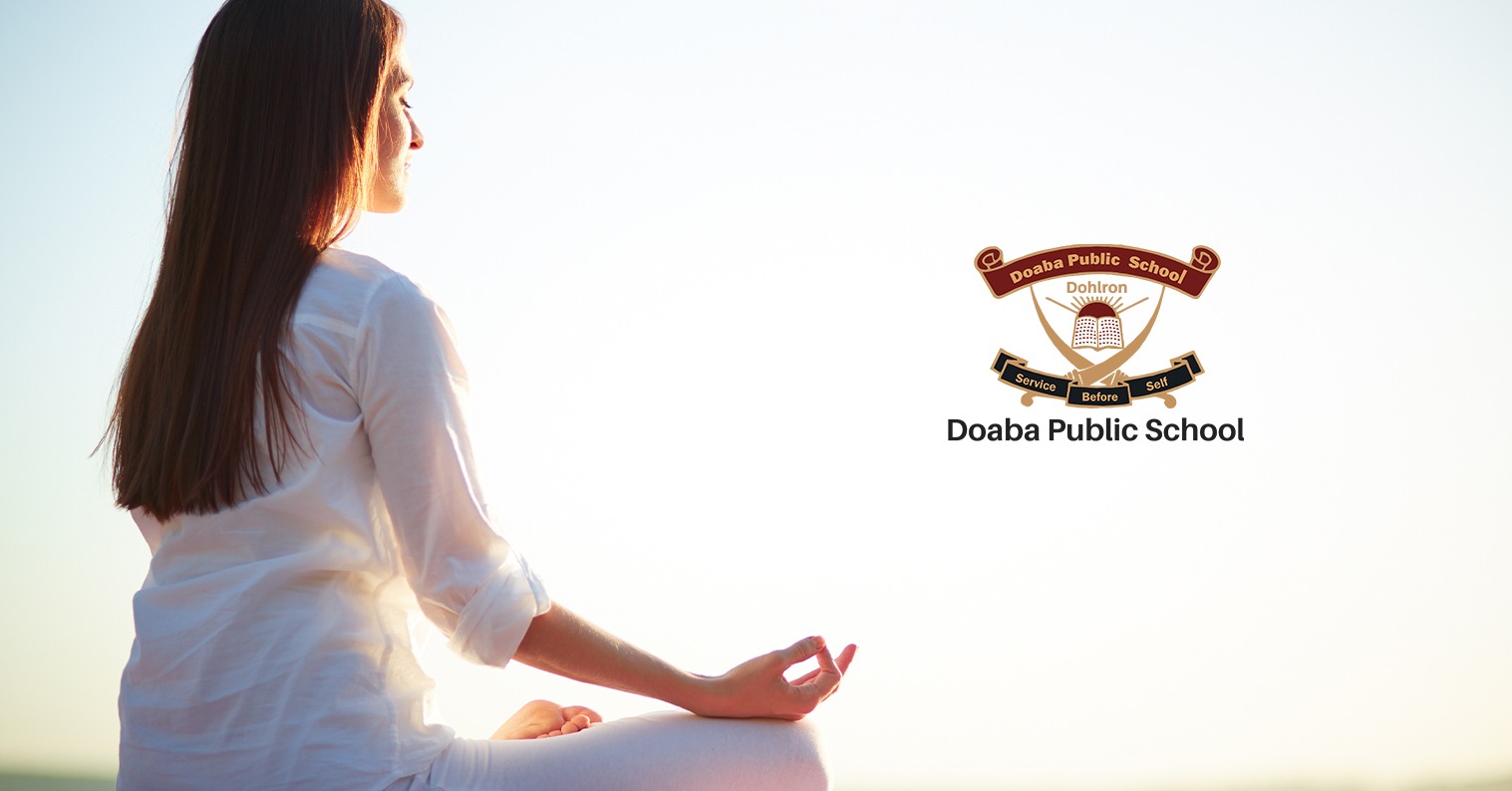
10 Jan How Yoga and Mindfulness Can Benefit Students
Introduction
In the fast-paced world of education, where students often grapple with academic pressures, extracurricular commitments, and the challenges of growing up, incorporating yoga and mindfulness into their routine can be a transformative approach to enhancing well-being. In this blog, Doaba Public School, Dohlron one of the Best 10 Schools in Hoshiarpur will explore the myriad benefits of yoga and mindfulness practices for students, emphasizing how these techniques contribute to physical health, mental clarity, and overall emotional balance.
- Stress Reduction and Anxiety Management
Yoga and mindfulness are renowned for their stress-reducing and anxiety-managing properties. Through gentle movements, controlled breathing, and focused attention, students can learn to cultivate a sense of calmness and relaxation. Regular practice helps alleviate stressors, providing students with effective tools to manage the demands of academic and personal life.
- Improved Concentration and Focus
Mindfulness, with its emphasis on being present in the moment, enhances students’ concentration and focus. The practice encourages the development of sustained attention, allowing students to engage more fully with their studies and extracurricular activities. Improved concentration can lead to better academic performance and a more enriching learning experience.
- Enhanced Physical Health and Flexibility
The physical aspect of yoga contributes to improved health and flexibility. The practice involves a combination of postures (asanas) and movements that promote strength, balance, and flexibility. Students who engage in regular yoga often experience better posture, increased energy levels, and a greater overall sense of physical well-being.
- Promotion of Emotional Resilience
Mindfulness fosters emotional resilience by encouraging students to observe and accept their thoughts and emotions without judgment. This non-reactive awareness allows them to navigate challenges with a calmer and more composed mindset. Developing emotional resilience is crucial for coping with the ups and downs of academic and personal life.
- Better Sleep Patterns
The relaxation techniques employed in yoga and mindfulness can contribute to improved sleep patterns. Many students face sleep-related challenges due to stress or irregular routines. Incorporating these practices helps promote better sleep quality, allowing students to wake up refreshed and ready to face the day.
- Cultivation of Self-awareness and Mind-Body Connection
Yoga and mindfulness emphasize self-awareness and the mind-body connection. Students learn to tune into their thoughts, feelings, and bodily sensations, fostering a deeper understanding of themselves. This heightened self-awareness can lead to better self-regulation and a more mindful approach to decision-making.
- Enhancement of Social and Emotional Learning (SEL) Skills
Yoga and mindfulness contribute to the development of Social and Emotional Learning (SEL) skills. These practices nurture qualities such as self-awareness, self-regulation, and interpersonal skills. Students who engage in SEL are better equipped to handle interpersonal relationships, communicate effectively, and collaborate with their peers.
- Creation of a Positive Classroom Environment
Implementing yoga and mindfulness practices in the classroom can create a positive and inclusive learning environment. These practices can be integrated into daily routines or as short breaks during the school day. Establishing a mindful atmosphere enhances the overall well-being of both students and educators, fostering a positive educational experience.
Conclusion
In conclusion, the incorporation of yoga and mindfulness into the lives of students offers a holistic approach to well-being. From stress reduction and improved concentration to enhanced physical health and emotional resilience, the benefits are far-reaching. By introducing these practices in educational settings, we empower students with valuable tools that not only support their academic journey but also contribute to their overall health and happiness. As we navigate the challenges of the modern world, fostering a mindful and balanced approach to learning becomes an essential aspect of promoting the well-being of our students.

Sorry, the comment form is closed at this time.